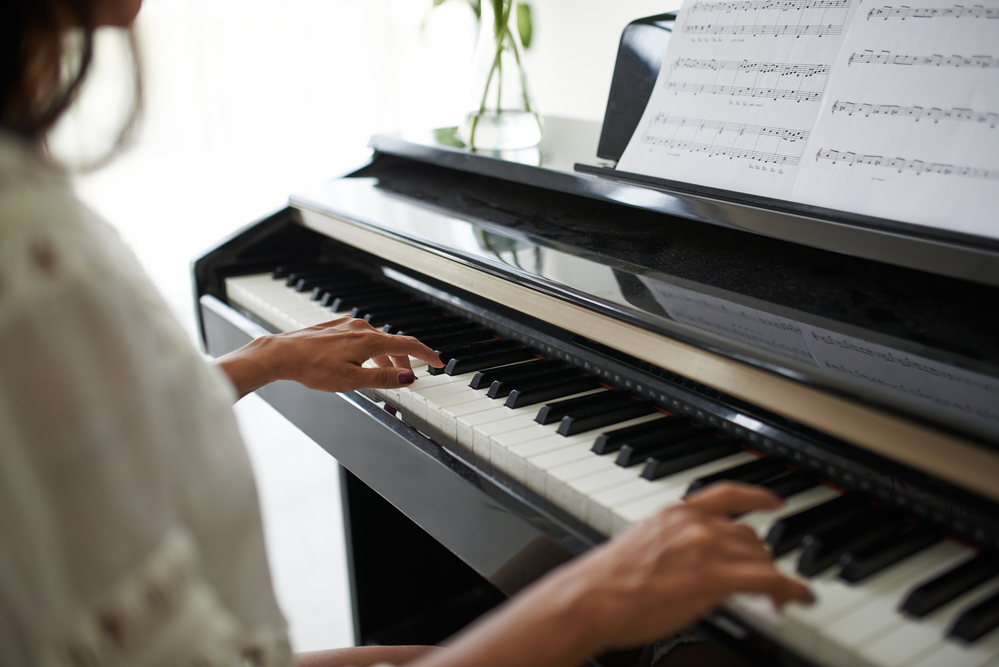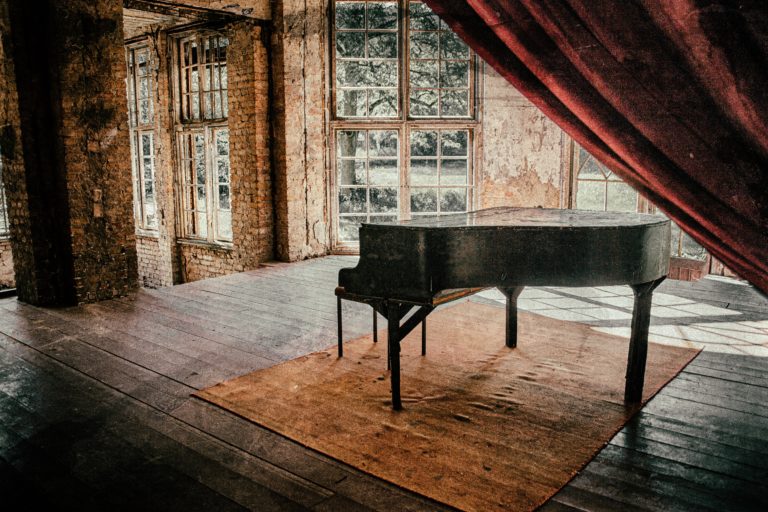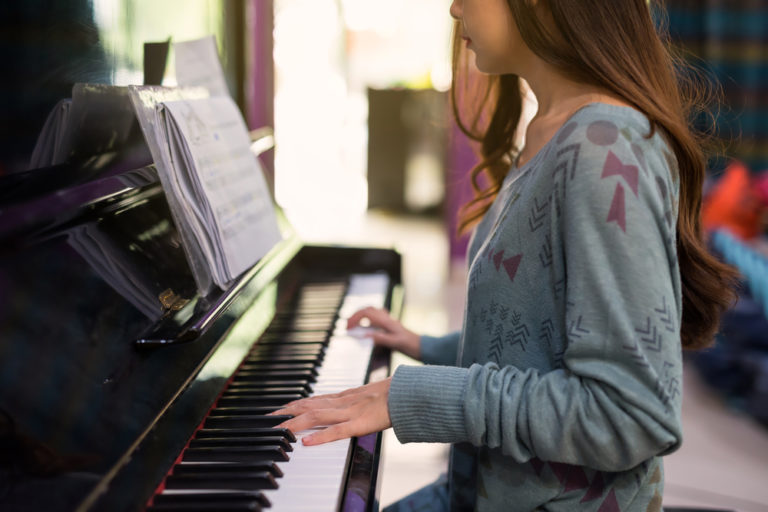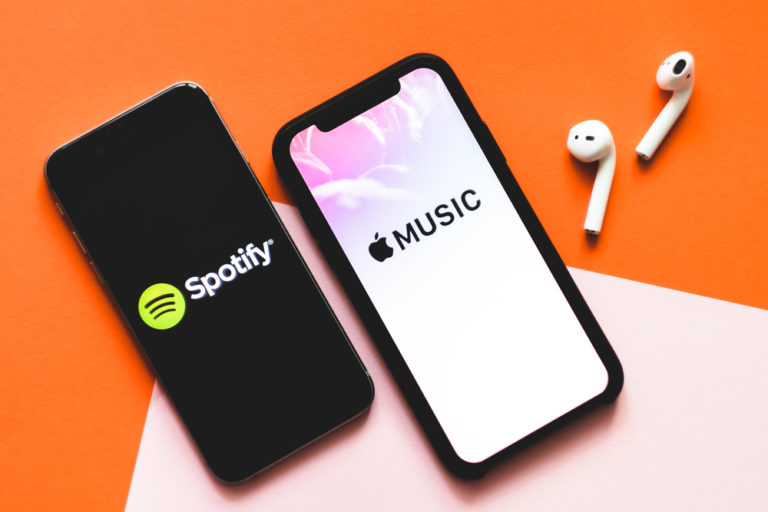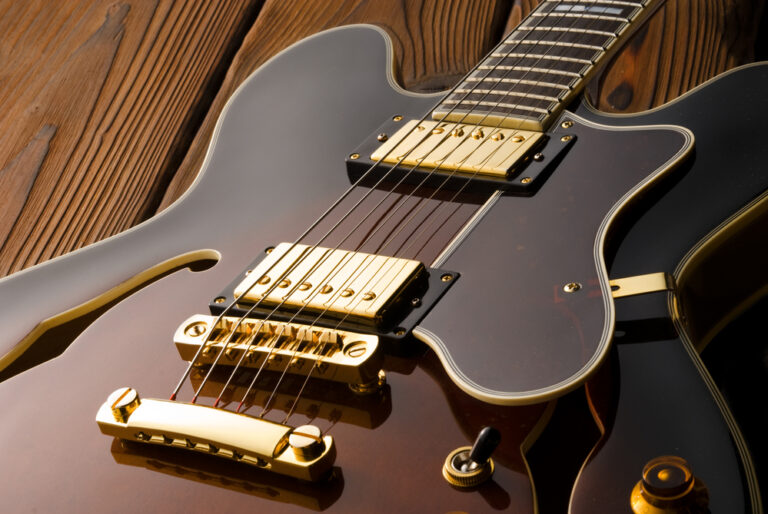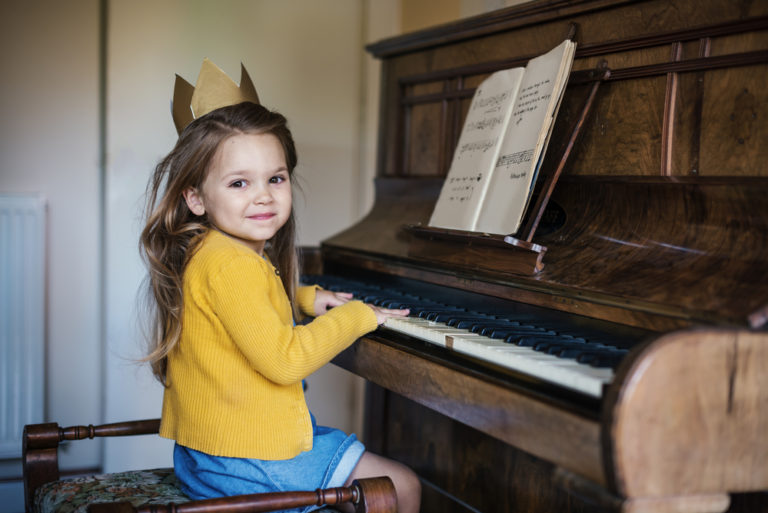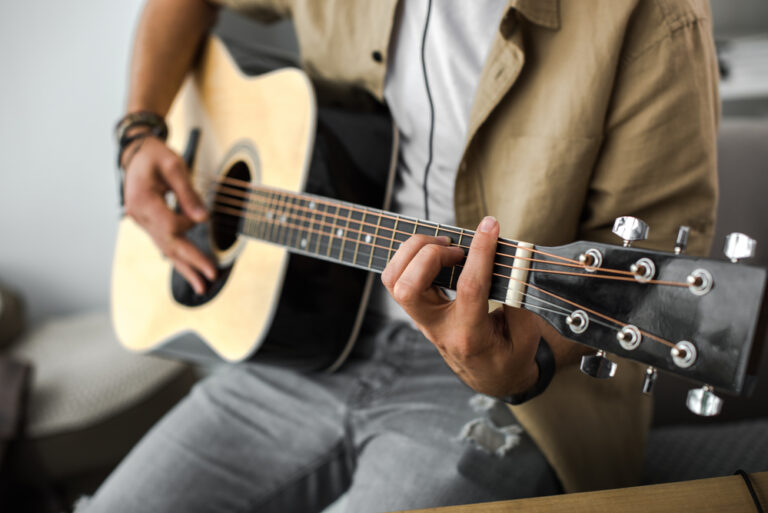15 Tips for Learning Piano As An Adult (2024)
Learning piano as an adult, or any other musical instrument, is not as hard as one might believe. Many people dismiss learning musical instruments since they believe that they are too old to learn. Age, however, is only an excuse. We never stop learning throughout our lives, and you can learn the piano at any age. Here are some of our tips!
1. Use age for your advantage
If you are an adult, learn to play piano by using your age to your advantage. Most people begin learning a musical instrument when they are young, however, that is not necessarily an advantage, as most kids are often forced to do it, and might not even grow to love it.
Learning an instrument as an adult, on the other hand, grants you the liberty of choosing what you want to learn, and you can use that motivation to learn things faster. Time may also be on your side, especially if you have retired, or even if you have a modest income and you don’t worry about money as a young person would.
You can dedicate as much time as you can, hire a teacher, choose how and what you want to learn. Children often struggle with paying attention, understanding certain concepts, but learning the piano as an adult, might be faster especially if you truly wish to do it.
You have the power of choosing everything and doing it your own way, and grasp everything easily. Learning as an adult has plenty of advantages.
2. Create a specific goal for yourself
When it comes to learning to play the piano for adults, it is important to have a goal in mind. Most people work best with project-based learning, unlike children, and as such, if you set yourself a goal, such as learning a specific song, play for someone, that will help you tremendously.
You don’t need to learn music theory if you just want to learn simple piano songs, such as Happy Birthday, or Canon D, however, the latter will require some dedication. In fact, if you wish to simply sing randomly, you still don’t need music theory, up to a certain point at least, you just need to learn the keys, and a couple of chords, scales, and you will be amazed at what you will be able to do, perhaps enough so to even learn music theory later.
You only need a piano, a bit of dedication, a song that you love, and you’re off on your musical journey before you even know it! Always set up milestones, goals, to keep your interest and motivation active! Piano lessons for adults are available online, so you can set up some goals regarding them!
3. Regular practice beats long hours
It takes around 700 hours to master something, for some less, for others more. However, the most important aspect in learning the piano at an older age is to practice regularly, rather than hours on end.
Around 15 minutes each day, five times a week is recommended for a beginner, if you can put more time in it the better, but don’t practice once a week for several hours. The thing is, if you practice like this, you might end up feeling burned out, especially if you have high expectations.
Patience is a virtue that comes with age, and it can be used as a great advantage for adults when used in learning a musical instrument. Talent has nothing to do with it, but consistency does, and as such, regular practice is the key to mastering anything.
Analyze your daily routine, and find the best time to practice the piano for you. You don’t need to do it every day at the same hour, just when it is the most convenient. Practice scales, chords, or even begin learning parts of your favorite songs!
There are plenty of videos out there that can help you learn piano. Adults, the best way to keep your interest high, try to sing a song for a loved one!
4. Create a practice goal each time
It’s easy to reach a dead-end if you practice the same things over and over again without a practice goal. The best way to learn piano for adults is to always have a goal in mind. It forces you to think ahead, view each session differently, and it will allow you to progress, and you will witness this progression in time.
Let’s say you have mastered a certain scale or even a song. Even though you like doing it, you should try playing it at different tempos, especially faster ones. You will notice that some things are harder than before, and this is where you need to practice and improve.
If things are too hard, stick to your regular tempo but with the clear goal in mind that eventually you need to do it faster. Practice with both hands the same things. When things seem easy enough, you need another goal, perhaps learning a new song.
Always have a practice goal each time you play the piano, and you will evolve constantly! Plenty of adult beginner piano lessons are available online that will keep you entertained! An adult piano course will help you to set your goals straight.
5. Learn the style you’re actually interested in
Oftentimes people think that they have to learn classical music when learning to play the piano. This is not the case, however, as you can choose to learn the style you’re actually interested in. If you want to play for your own enjoyment and to have fun, you can start with pop songs, for example.
Many songs from older artists such as Abba have some great keyboard songs which can be played with the piano. This is actually a very important aspect when you want to learn something, it must be enjoyable.
A great adult piano method of learning is to start by learning familiar songs and tunes which you actually like. It will help you in the long run, as it will inevitably motivate you to keep on learning, and nothing compares to that feeling when you learn to play a familiar tune, you will love it! Find the piano song version of the artists that you like, and start practicing it!
6. Start out with online piano lessons
The best part about the internet is that you can learn most things, and this also applies to piano lessons. Heck, you can even stay in your pajamas and watch tutorial videos, read, or even hire an online teacher.
Some piano for adults courses are free, others aren’t, but the best part is that you can find almost anything explained quite well, and quite in-depth. This way, you can practice whenever you want, without the need to get ready for a certain hour when your teacher arrives at home, or you have to go there.
Even if you have a busy schedule, this is the fastest way of learning to play piano as an adult, and the most convenient one. There are even Facebook groups out there, forums, where you can find, or ask about anything, for free. You can learn different things anytime you wish, even if it’s early in the morning or late at night.
7. Focus on mastering the fundamentals
One of the most demotivating factors for an adult piano student when learning is music theory. A lot of music talk can do more bad than good, with different opinions stating that you need to learn this and that.
Learning music as an adult, in fact, isn’t that hard since you only need to learn the basics and the fundamentals of playing the piano. You should first learn the proper posture, the notes, get your basic fingering right, and this means practicing scales. Though it may be boring, it will teach you to hit the right notes with the right fingers, it will train your up and down movements in such a way that you will hit the next right note as the scale progresses.
You will need to perform rhythm drills to maintain a consistent rhythm and be accustomed to accelerating tempos. Chords are easy to master, but all in all, learning these fundamentals the right way from the beginning will benefit you in everything that you will do in the future, especially if you want to play your favorite songs.
8. Don’t compare yourself with kids
Too often we demotivate ourselves by doing comparisons. You have to remember that your main goal here is to learn something new. Don’t compare yourself to others, especially children, since they learn faster certain aspects.
It is true that adults are less likely to become grand piano players, however, they have the advantage of previously acquired skills and intellectual abilities, that combined with consistent practice, may lead them in becoming advanced piano players.
If you want to learn piano as an adult, the only person you should compare yourself with is you, the you from yesterday, or from a week, or month ago. Every person is gifted in doing a certain thing, but the real beauty of life emerges when we work towards achieving something that we weren’t good at from the beginning, and this is what separates us from the rest.
So, no matter what you do, it doesn’t matter what level you are compared to someone else, what is important is that you are doing something you are unfamiliar with, you are learning, and you want more from yourself as an adult. Learn piano for your own satisfaction!
Also read: Music Streaming Statistics (US & Global Data)
9. Embrace the mistakes if you want to progress
Mistakes are bound to happen no matter how well we prepare ourselves. The key here is to not be embarrassed, accept these mistakes, and move on towards learning how to do it in the right manner.
You shouldn’t shy away from mistakes, especially in front of a music teacher, because your mistakes will reveal your weaknesses, weaknesses which you or your teacher will observe, and work towards repairing them.
You should identify these mistakes as soon as you can, since you may develop a bad habit of repeating them. Probably the best way to check up on your progress is to post a recording of you playing on a forum, and ask for opinions.
There is nothing to be embarrassed here since you prove your will to learn, and this is something that any true professional will acknowledge, and will try to help you in your endeavor.
10. Find a teacher you relate to
Some people can progress while doing online lessons, but in the end, the natural next step is to find a real teacher to advance, but it all depends on how far you want to go with your piano playing skills.
To an adult piano player, having a real teacher next to them might be the fastest way of learning to play the piano since he or she will quickly point out what you are doing right, wrong, and of course, they will provide the right steps and necessary guidance to ensure your progress.
Not only this, even the moral obligation of coming to their home, or if they come to yours, ensures the practice routine which will help you develop a habit out of, and thus, inevitably progress in your musical journey.
This step is indeed not for everyone, as some can do just well on their own, however, for others, it is the natural next step. A real-life teacher in the flesh can motivate you on all levels, and if you think about it, music is meant to be shared anyway!
11. Develop your musical ear
Plenty of pianists rely on their reading skills rather than their musical ear abilities, as this is a great disadvantage. Without a musical ear, which is primordial when it comes to music, one cannot truly enjoy, understand, or play that well.
A beginner should train their musical ear and reading skills. You have to develop your ear, and it can be done even if you consider yourself that you lack these skills. Start off by listening to plenty of piano songs from different genres, and actively listen to music.
If you have already begun singing, in time you will be able to recognize certain notes, chords, even predict progressions. When you listen to a song, try to pay attention to one instrument at a time, identify it, and see how it fits and completes the rest.
Train your ear to recognize rhythmic patterns, harmonic patterns, and melodies, and if you have decided to hire a music teacher, they will help you out in this endeavor.
12. Record your performances
One of the best ways to track your performance and hear exactly which things you need to improve is by recording yourself. This can easily be done nowadays with a camera, telephone, or just get a recording program on your computer, and plug your keyboard in.
There are also plenty of digital pianos online, where you can sing and record in real-time. By listening to your performance, you will spot your mistakes and know what to work on, but not only this.
While you actively listen to yourself playing, you actually train your musical ear in spotting these mistakes, which will help you when you play without recording, or while listening to others. Recording your performance while playing the piano is probably the best technique to help you progress faster on more than one aspect. It helps you from all points of view and trains more than just your singing.
13. There is no right or wrong way to learn piano
No matter what, if you truly wish to learn to play the piano as an adult, there is no right way or wrong way of doing it. You have to embrace what works out the best for you, and that means either learning yourself, with some online help or going to a piano class for adults with a teacher.
You can try to learn the piano just to play one specific song, or you can learn music theory, regardless of your choices. The most important thing, in the end, is that you are learning. Test what works out for you, be it a real-life teacher, or individually, studying on your own.
Weigh the pros and cons of both ways and decide which one is the best for you and your end goals. Keep your learning schedule interesting and try to develop a habit when it comes to practicing, and this way you will learn the piano before you even realize it!
14. Keep a practice journal
A great way to progress even faster and better is by keeping a practice journal and actively write down your endeavors. Think about how people who go to the gym do it. They write down exactly what they did, how it went, and so on.
This is exactly what you should do in a practice journal. Write down what songs, chords, or scales you practice. Write down the tempo, and most importantly, state where you had problems, and what those problems were.
Write how much time you spend on that day doing what, and don’t forget to write about what went well. This way, you can track your progress and improve where you need to. If you don’t do this, then chances are high that you will forget what you did, or even what went wrong, so how will you know what needs improvement?
15. If you are looking for a sign, this is it. Start now!
We hope our 15 tips for learning piano as an adult will help you on your musical journey, and if you are still looking for a sign, then this is it! Start doing it now! No one is too old to start learning the piano, and oftentimes, in the beginning, piano for adults might sound scary, but it isn’t.
A piano for adult beginners or an adult keyboard is also quite a cheap investment financially, but it will bring an extensive spiritual profit! beginning piano for adults
Indeed, the best time to start was yesterday, but the next best time to start is today! Imagine how it would have been, at what level you would be, if you started doing this months ago. Think about the fact that you from the future might look back on this day and think “hey, if I only started then, where would I be now?”
This is the key here, the starting point. Most of our lives are wasted on procrastination, so why go on with it? Ever went to a party where there was a piano and you wished you wanted to show off? Next time you just might be able to do it if you start learning the piano today! It’s way easier than you think, only our perception makes it harder, and that perception is oftentimes only an illusion. Learning piano for adults might seem hard, but it’s quite the opposite.
FAQ
How to teach piano to adults?
An adult learning piano is easier to teach than a child, due to their interest, attention spawn, and life experience. The best way to start is by learning the right posture, finger position, chords, scales, and rhythm drills.
How to learn piano as an adult?
There are two ways to learn piano as an adult: one way is to start learning the basics yourself through online lessons and courses, the other is to get a piano teacher.
Is it too late to learn piano?
It is never too late to learn piano. The only things which can stop someone from playing the piano might be related to disease or other physical problems, but not age.
Can you teach yourself piano?
You can teach yourself to play the piano at home through online lessons, courses, video tutorials, or you can even hire an online teacher.
Can adults learn to play piano?
Adults can learn to play the piano at any age. Depending on their life experiences, some might even learn faster than children and progress easily.
How long does it take to learn piano for adults?
There are many adult piano lessons out there for beginners, intermediate, or advanced players. Familiarizing yourself with the basics should take less than two months.
At what age is it too late to learn piano?
No age is too late to start learning the piano, however, health conditions may halt a person from doing it. Age, however, is irrelevant.
Can you learn piano in your 50s?
You can learn to play the piano in your 50s quite easily, especially if you practice often. You can also learn to play by yourself at home or with a teacher.

